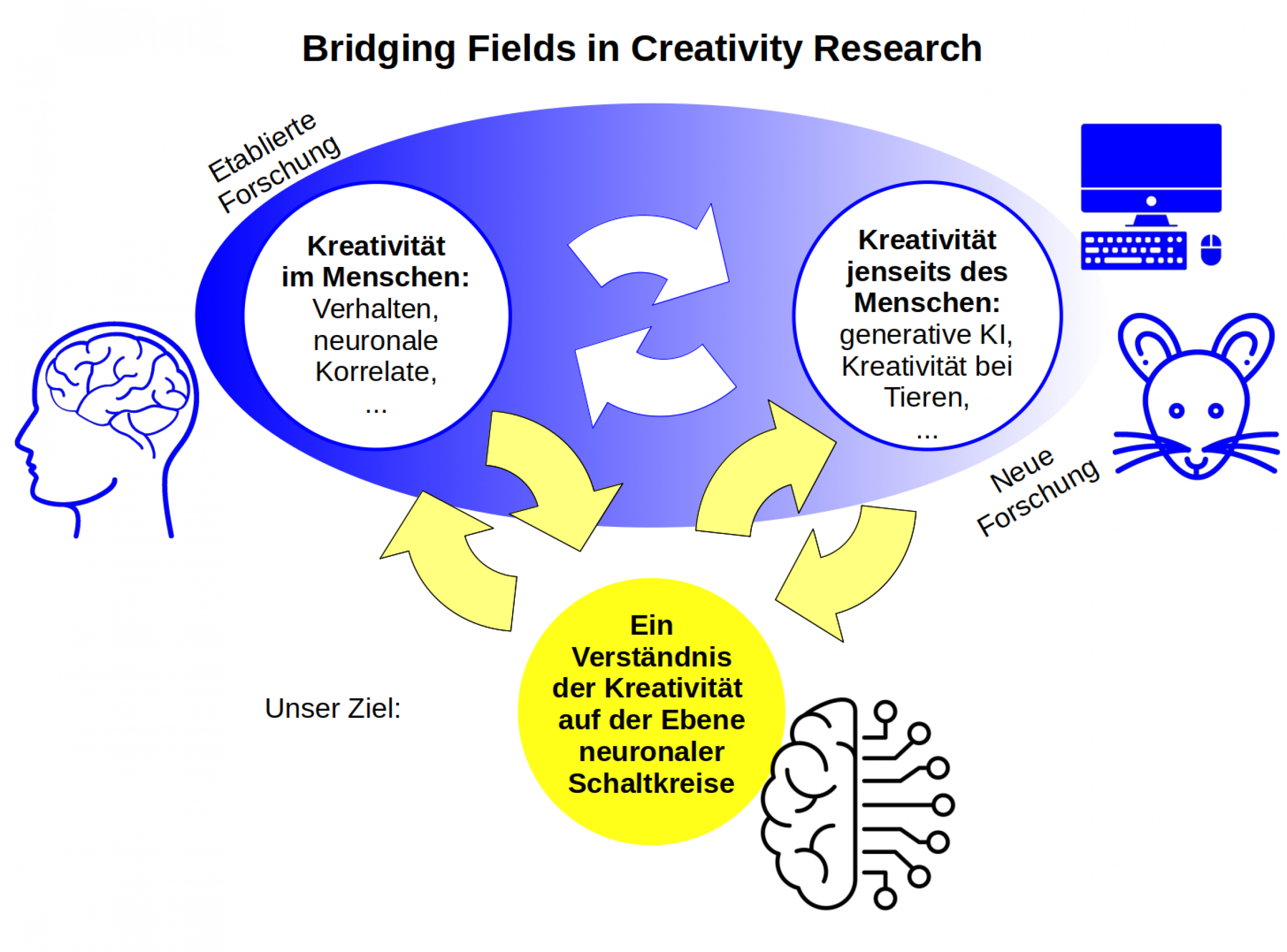August 22, 2024
How our thinking gets creative
International conference combines disciplines of creativity research
Creative processes and their mechanisms in our nervous system are the focus of the conference ‘Bridging Fields in Creativity Research’. The interdisciplinary conference will take place from 11 to 13 September 2024 in the historic Old District Court in Oppenheim. The organisers from the Frankfurt Institute for Advanced Studies (FIAS) and the Research Centre for Translational Neuroscience (FTN) at the Mainz University Medical Centre will bring together leading scientists from various disciplines.
A lot of research is being done into human creativity - for example, which areas of the brain are involved or how much heredity is behind it. What is largely unknown, however, are the processes that take place in the brain during a ‘flash of inspiration’ and how creative thoughts are interconnected and networked. Scientists from FIAS and Mainz University Medical Centre want to explore this new field of research over the next few years. The first step will be a conference at which international researchers from the fields of psychology, neuroscience and computer science will pool their knowledge on creativity.
Lectures by renowned experts such as memory researcher Daniel Schacter (Harvard University) will shed light on the neuronal connections of creativity. The aim is to gain an in-depth understanding of the neuronal basis of creative thinking - and its far-reaching significance for brain research and artificial neuronal networks. For example, psychologist Roger Beaty from Pennsylvania State University will explain why some people are more creative than others. He uses behavioural experiments and creativity tests to investigate how the brain links ideas together. Anna Abraham, a psychologist at the University of Georgia, sheds light on the limits of artificial intelligence in imitating human creativity. She researches brain regions, diseases and development. In her book ‘The Creative Brain: Myths and Truths’, she uncovered widespread misconceptions about creativity.
Computer scientist Claire Stevenson from the University of Amsterdam compares how humans and artificial intelligence manage creative tasks. She sheds light on the differences and potential of both systems.
Theoretical neuroscientist Jaan Aru began his career at FIAS and is now researching the neuronal basis of creativity at the University of Tartu in Estonia: How does the brain control creative processes? His new book deals with topics such as creative thinking, mindfulness and the impact of digital technologies on creativity.
Bridging the various disciplines of creativity research is the starting point for future research into the neuronal circuits for creative thinking at FIAS and Mainz University. "We want to understand the processes of creativity," says co-initiator Bastian Eppler from FIAS, describing the research objective for the coming years. "Creativity is fundamental to our individual identity and has a major influence on our societies in order to overcome upcoming challenges."
